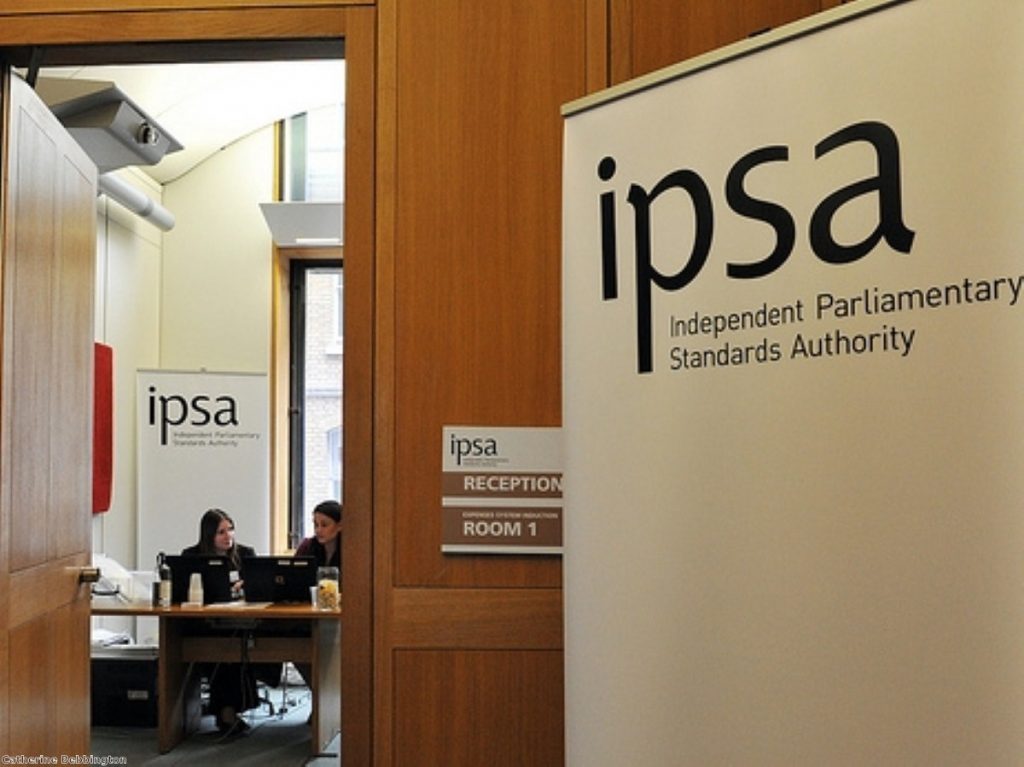MPs’ pay rise: Ipsa left with few allies as enemies circle
The body charged with regulating MPs' pay and expenses looked as if it had radically overplayed its hand today, amid signs it will not survive the current crisis.
The Independent Parliamentary Standards Authority (IPSA) was left with very few public allies following its recommendation that MPs' recieve an 11% pay rise, with party leaders openly considering killing it off entirely.
In a bid to defend the organisation against attack, Ipsa chair Sir Ian Kennedy tried to highlight the danger of reverting back to the previous arrangement on deciding politician's pay.
"I know there is a tension between the reasoning and the politics, but we were asked to fix the problem for a generation, not for a news cycle. That is what we have done," he told the Times.


"The alternative approach takes us back to the days of political deals, with scandal never far away. I can't believe anyone seriously believes that is the way forward."
Cameron cannot allow the pay rise to take place under his watch because of the public outcry. Such a development would also make him look powerless, given how categorically he has stated his opposition to it.
But if Cameron rejects the Ipsa recommendation and forces it to drop the proposal, it will have effectively been stripped of its function and shown to not be independent.
The prime minister's response to questions during PMQs yesterday suggested he was prepared to close it down altogether.
"Ipsa do need to think again and unless they do so I don't think anyone will want to rule anything out," he said.
Cameron would rather kick the issue into the long grass until after the election, but Ed Miliband is intent on forcing his hand.
The Labour leader is demanding a meeting between himself, Cameron, Nick Clegg and Kennedy later today.
"The public expect us to resolve this now and not wait until 2015. It only undermines confidence and trust in our political system if the uncertainty about MPs' pay is allowed to continue," he wrote to the prime minister last night.
"Therefore I believe the three party leaders should meet Sir Ian Kennedy tomorrow to make clear our view that we cannot go ahead with the current proposition."
The watchdog enjoys perilously little political support. Its overly-complex arrangements for MPs' expenses claims mean it is widely detested in Westminster, while its demand for a substantial pay rise for parliamentarians mean it is now distrusted outside Westminster.
"In recommending this pay hike at a time when wages are stagnating for millions across the country, Ipsa has demonstrated itself to be not fit for purpose," Jonathan Isaby of the TaxPayers' Alliance said.
"This unaccountable bureaucratic monster of a quango, which was supposed to help restore public faith in parliament after the 2009 MPs' expenses scandal, has in fact just succeeded in turning the clock back four years."
The recommendation for a pay rise may not be quite as beneficial to MPs as it first appears.
The rise in pay would make up for a decline in the value of MPs' pensions, which would be cut from £23,000 to £16,000.
A backbencher's total package would then stick around the £90,000 a year mark, varying little to how it stands now.












